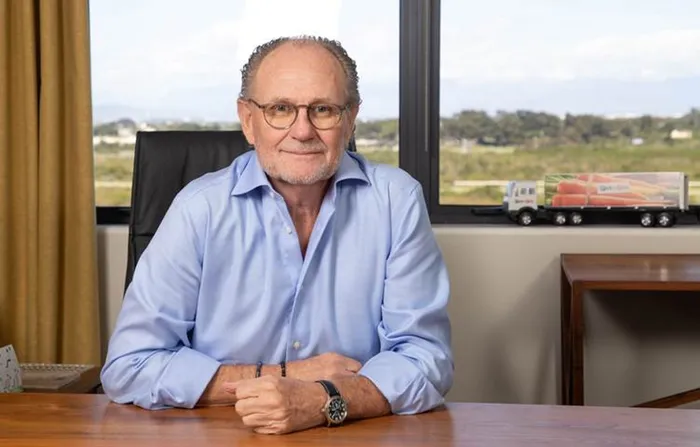Pick n Pay reports narrowing losses but faces multi-year path to break-even
Retail

Pick n Pay CEO Sean Summers said breakeven may turn out to be a multi-year achievement for the group
Image: Supplied
Pick n Pay’s share price fell hard by 6.7% on the JSE Monday morning after it reported that break-even was likely to be a multi-year project.
The share price fell to R30.28 in early trading, although it remained above the R26.48 that it traded at the same time a year before.
The group, which has closed many supermarket stores in South Africa as part of a comprehensive turnaround strategy, said in results for the 26 weeks to August 31 that its headline loss per share had narrowed by 56.2% to 59.77 cents.
“While reaching break-even remains a multi-year journey, the investments we are making to rebuild retail excellence will ensure sustainable, long-term profitability. The work we are doing now will manifest itself in the future, and every investment we make is to ensure our long-term success,” said CEO Sean Summers, who was specifically appointed in September 2023 to head the turnaround process.
He said their turnaround was gaining traction and the group is on track with its strategy. Like-for-like sales growth had accelerated, customer numbers were growing, and separately listed 65%-held discount retail group Boxer continued to outperform.
Boxer had reported a 13.9% increase in turnover in the six-month period. PnP Clothing opened its 400th standalone store as it expanded and gained market share. Online sales recorded solid double-digit growth.
Pick n Pay Supermarkets’ market share had stabilised, notwithstanding the reduction in the size of the supermarket estate, “a clear sign that we are on the right path,” said Summers.
Group turnover grew 4.9%, with like-for-like (LfL) sales up 4.7%. Pick n Pay SA company-owned supermarkets achieved 4.8% LfL growth, well ahead of internal selling price inflation of 2.1%.
LfL customer growth accelerated to 7.4% from 3.7% in FY25 across SA company-owned stores. Clothing turnover increased 12% (7.5% LfL). Online sales grew 34.4%, driven by expansion in asap! and Pick n Pay groceries on Mr D, combined up 44%.
The reduction in headline loss per share was driven by steady operational improvements and the interest savings resulting from the recapitalisation.
The Store Estate Reset programme, a key part of the Pick n Pay turnaround strategy, was now largely complete.
“This is an important milestone. Going forward, any further changes to our store estate will simply be a normal part of assessing each store’s performance as leases come up for renewal,” said Summers.
Summers said that the focus remains to “strengthen the customer offer, accelerate like-for-like sales, establish a sustainable future-fit business, and unlock new growth engines to support the turnaround."
A stronger Fresh product offer, more Own Brand lines, and customer service training for over 28,000 store employees had all enhanced the in-store experience and saw customers increasingly turning to Pick n Pay as their supermarket of choice, he said.
In addition, the improved franchise operating model combined with closer engagement and collaboration with franchise partners was driving improvements across the supermarket estate.
Pricing discipline kept internal selling-price inflation at 2.1%, well below CPI food inflation of 4.6%, helping all customers.
“We are confident that our pricing is now consistently competitive, which is borne out by leading independent market surveys,” he said.
The group confirmed it would invest R2.2 billion over the full financial year, focused on the expansion of Boxer and PnP Clothing, while capex on Pick n Pay Supermarkets would be prudently allocated to customer-facing initiatives and strategic store revamps.